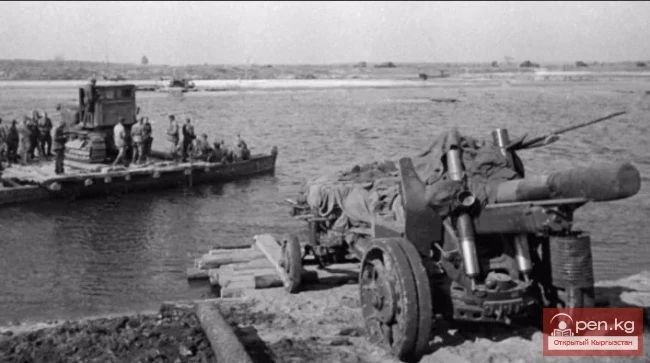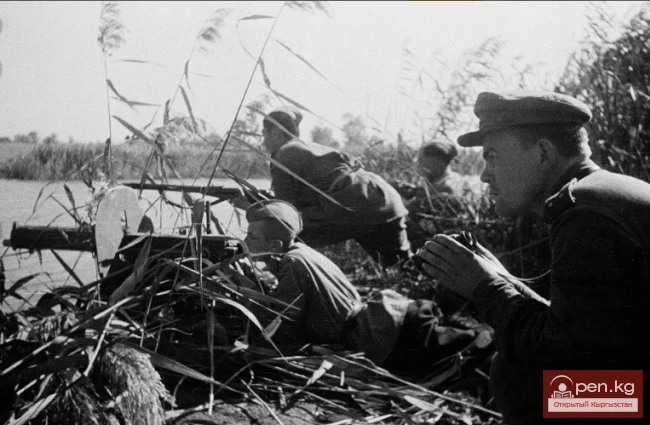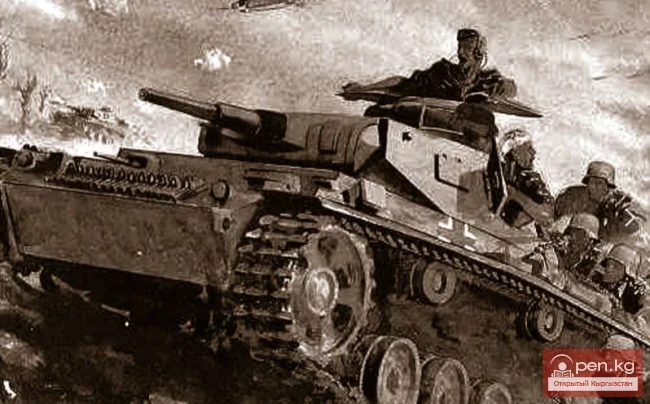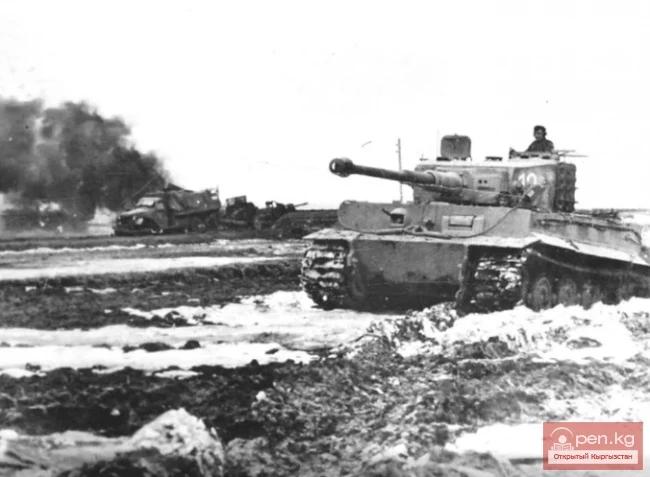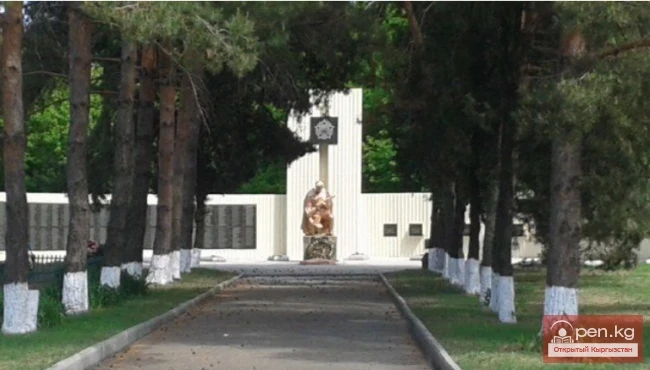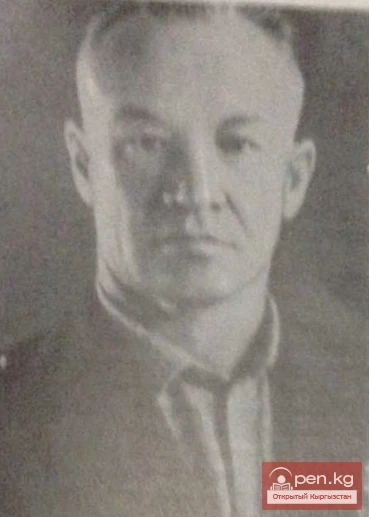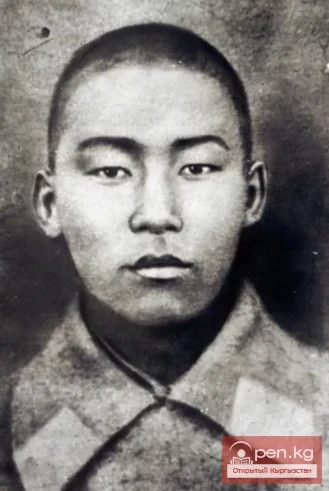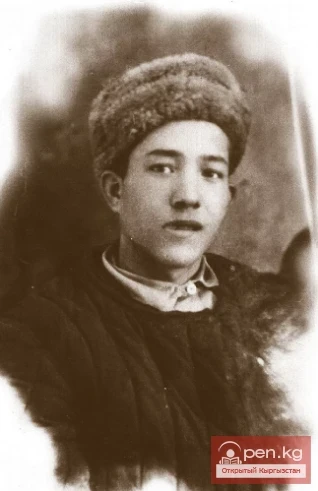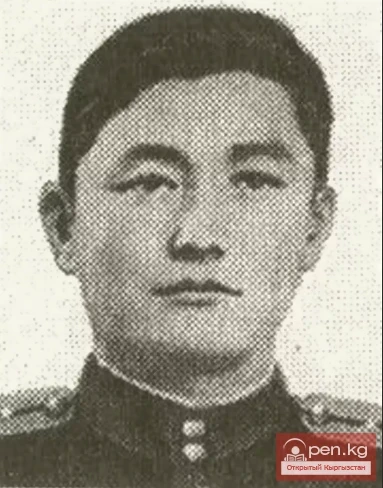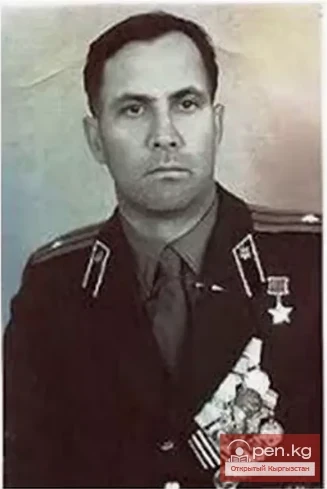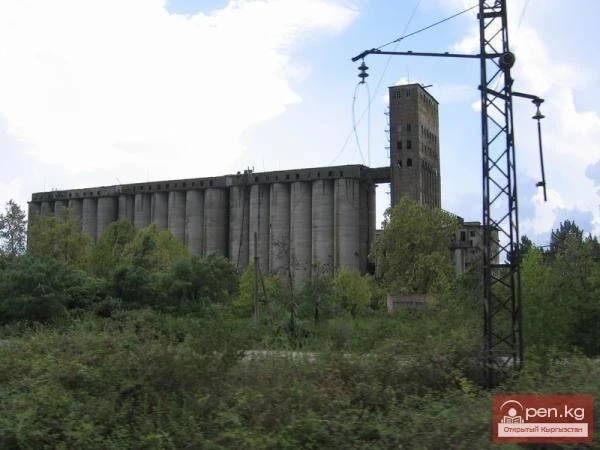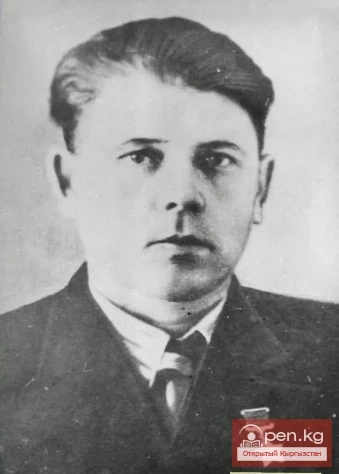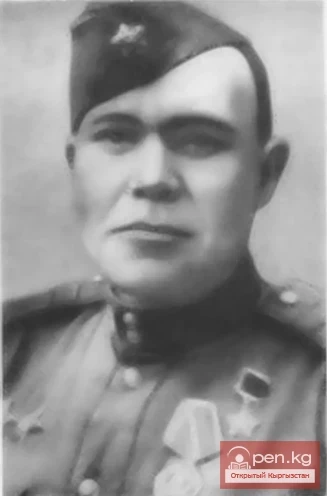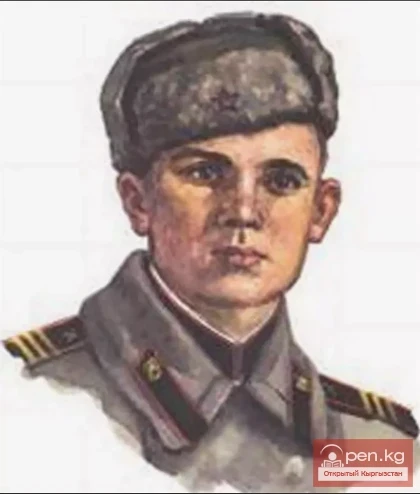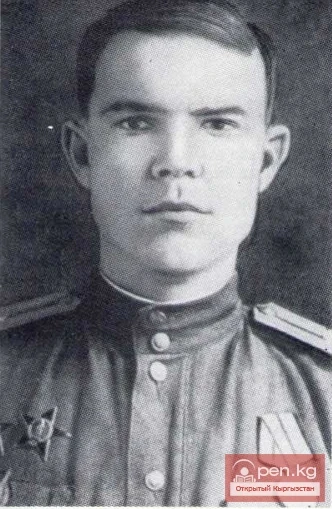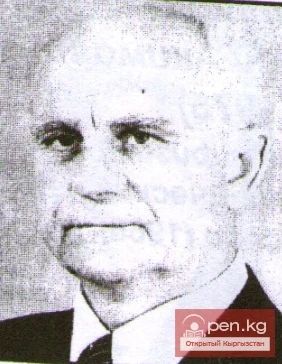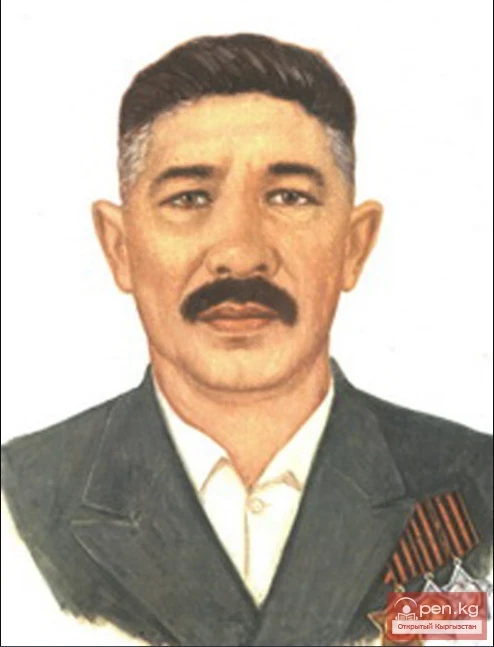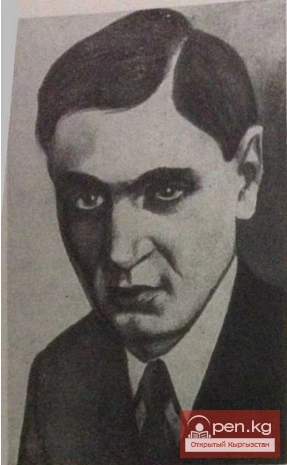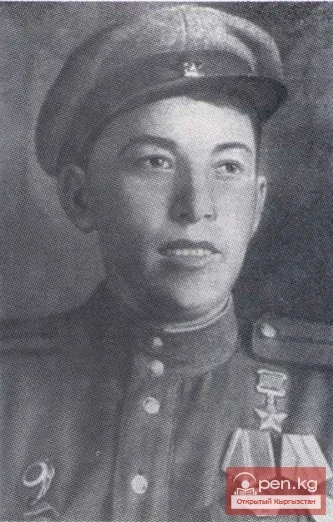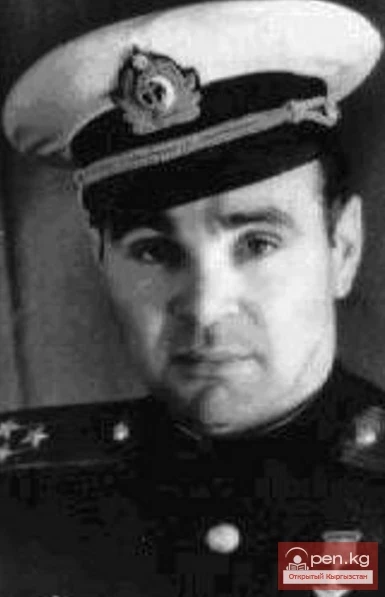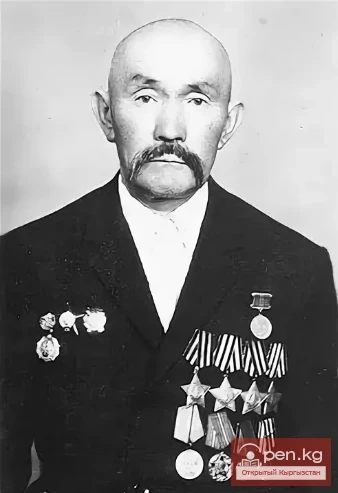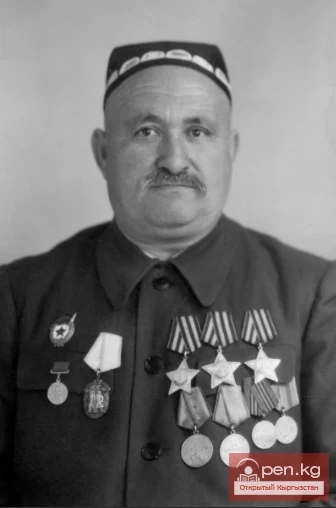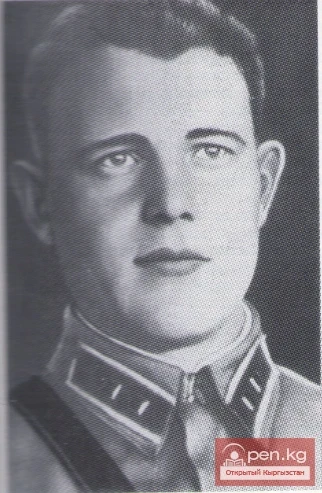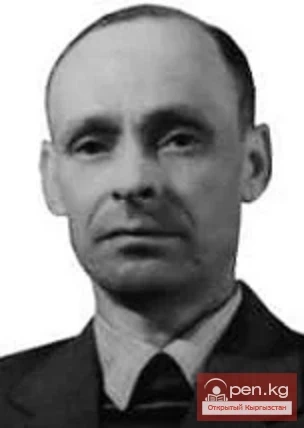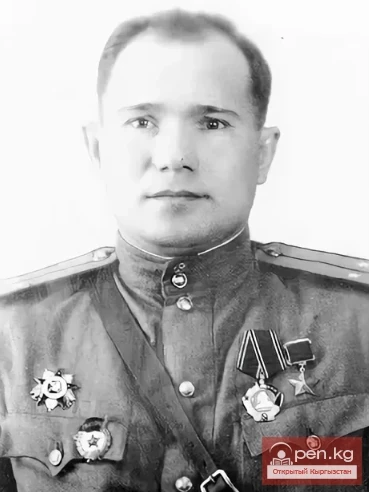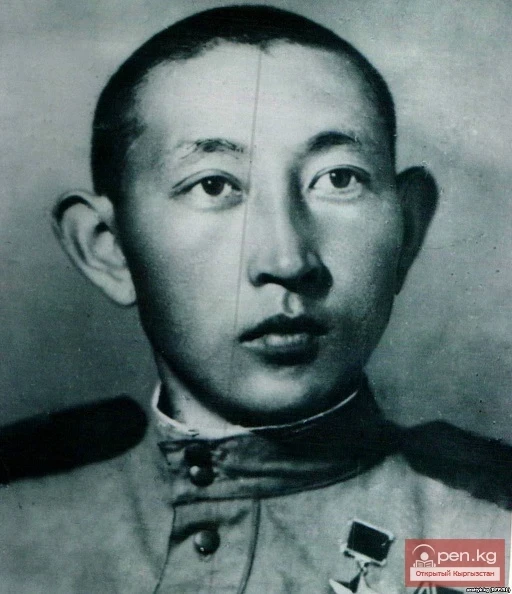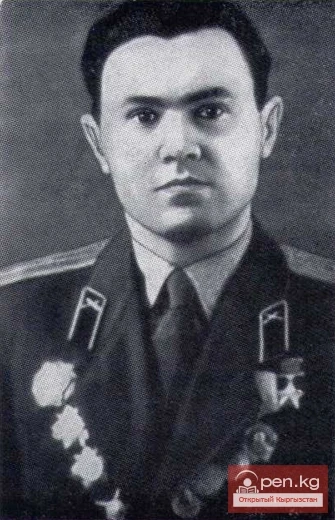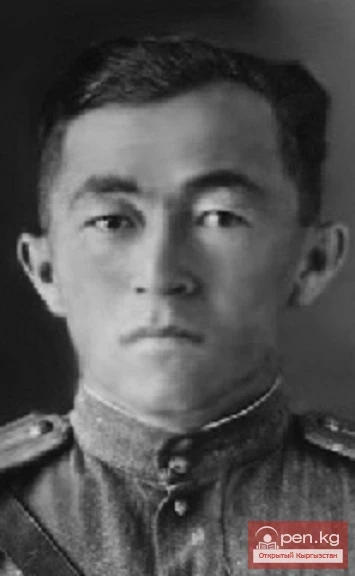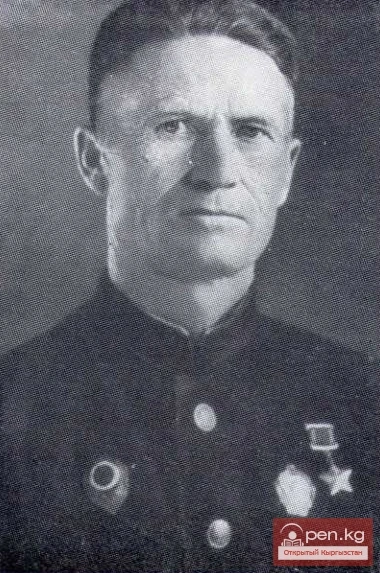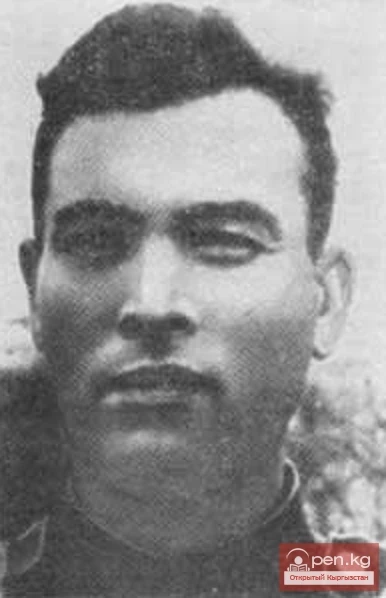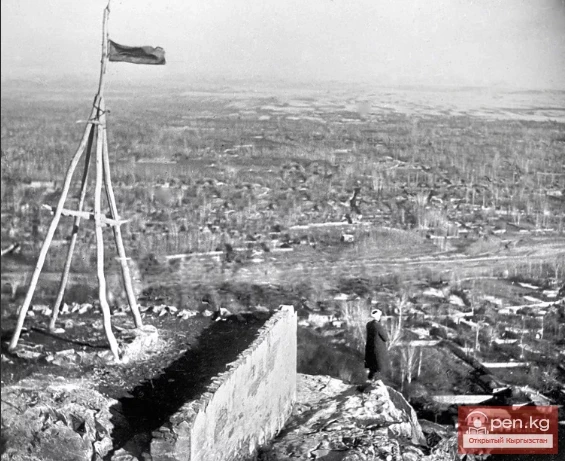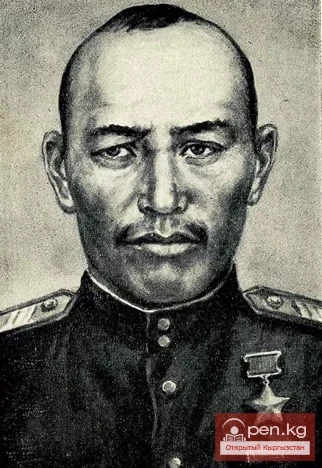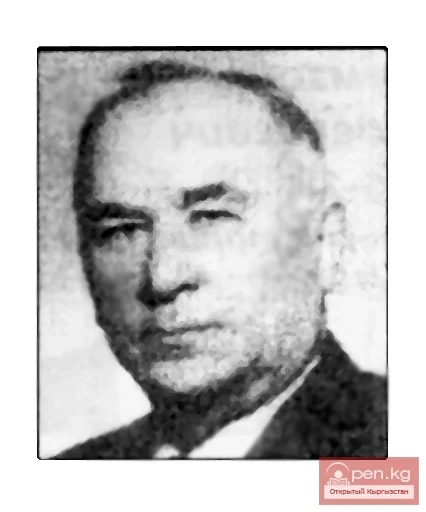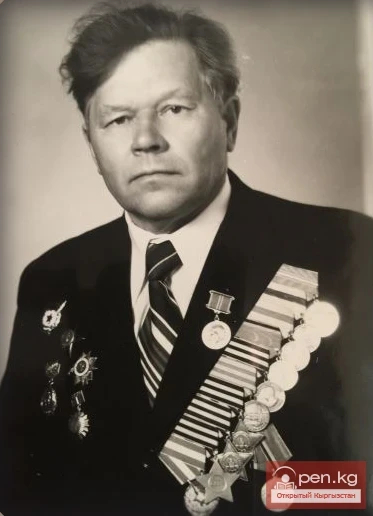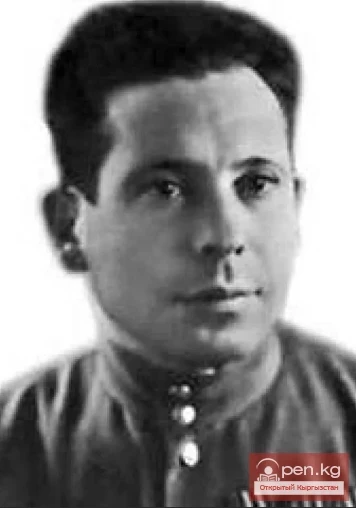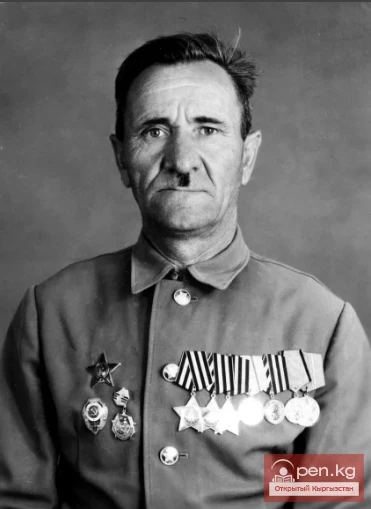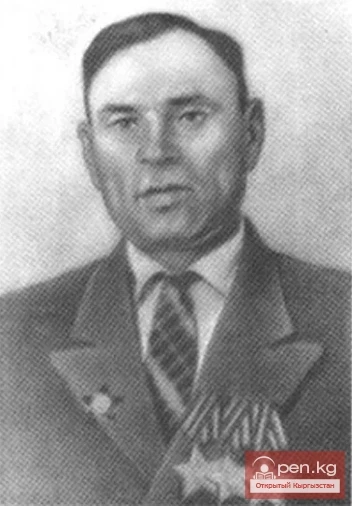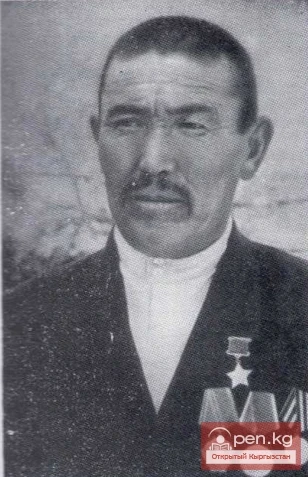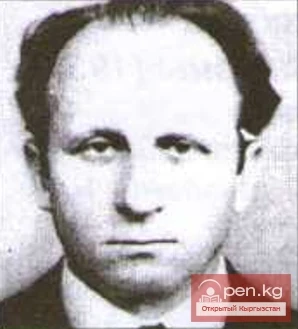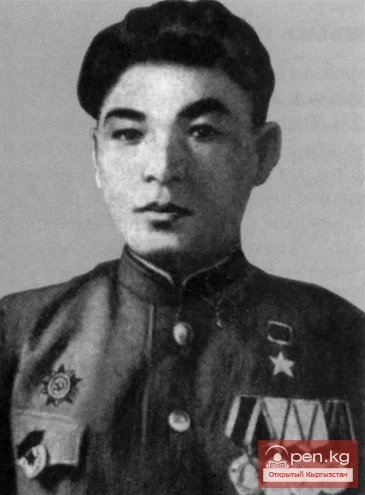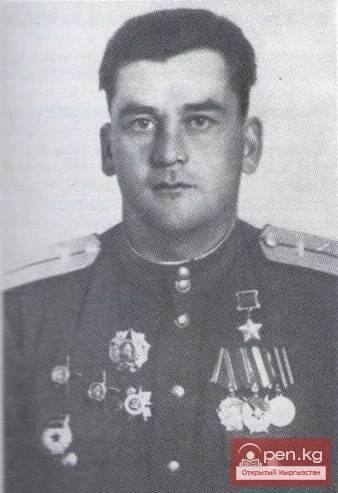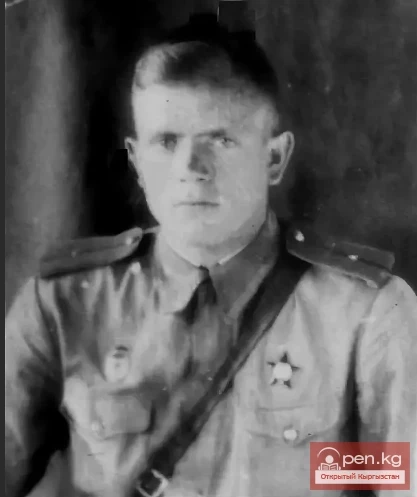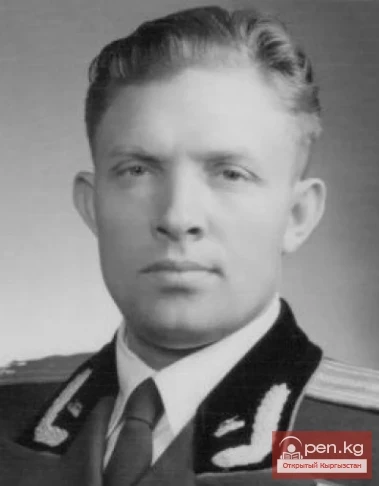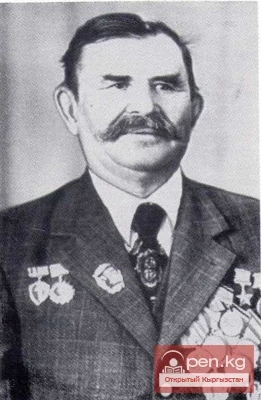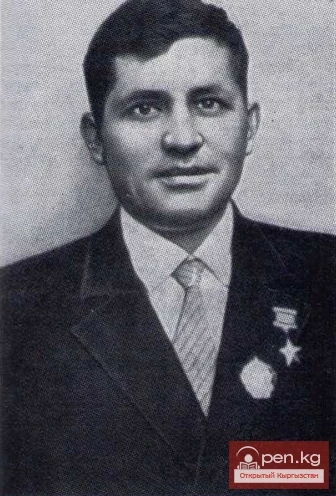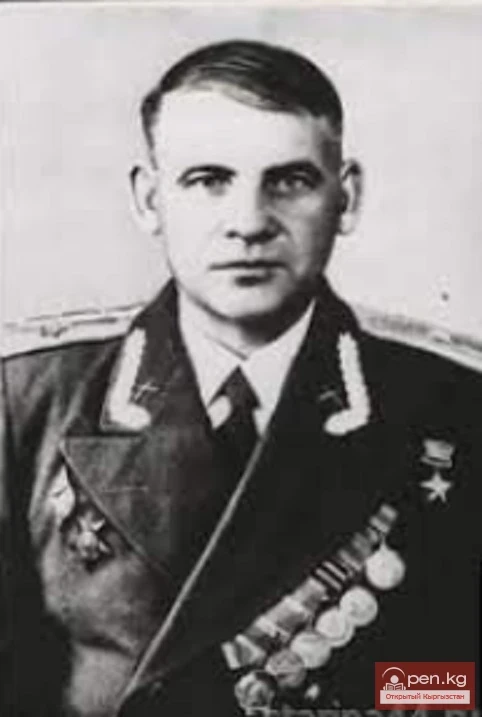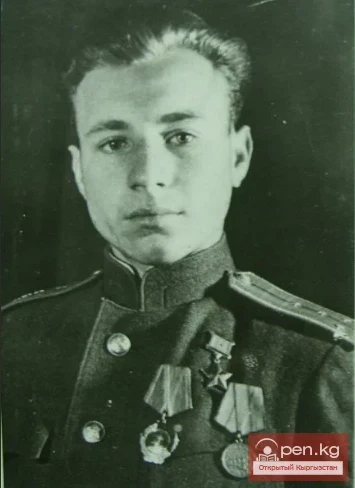
Hero of the Soviet Union Stepan Semyonovich Ovcharov
Stepan Semyonovich Ovcharov was born in 1909 in the village of Novo-Konstantinovka, Alsheevsky District, Bashkir ASSR. He was Ukrainian. Before the Great Patriotic War, he lived and worked for several years in the village of Kalininskoye and the city of Tokmak in the Kyrgyz SSR. In September 1941, he was drafted into the Soviet Army. Guard sergeant. Gun commander.
From February 1942, he fought as part of the Voronezh and 2nd Ukrainian fronts. He participated in battles near Voronezh, Kharkov, and on the Dnieper.
On February 22, 1944, for his courage and bravery displayed during the crossing of the Dnieper, S. S. Ovcharov was posthumously awarded the title of Hero of the Soviet Union.
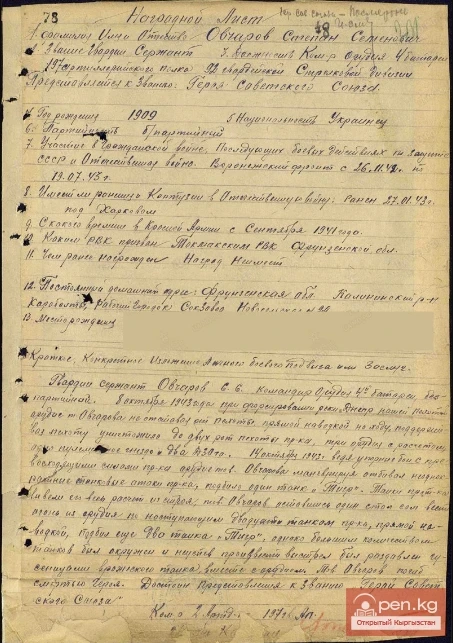
He was buried in the village of Kaluzhino, Dnipropetrovsk region.
In the city of Tokmak, Kyrgyz SSR, one of the streets is named after the Hero.
THE LAST BATTLE OF SERGEANT OVCHAROV
After the capture of Krasnograd, everyone in the division spoke only of the Dnieper. The thoughts of commanders and soldiers were directed toward the mighty river. "Dnieper. We are coming to you!" This very thought inspired the warriors, helping them overcome the leaden weight of prolonged marches. And the "Eastern Wall," which was trumpeted by Goebbels' propaganda, did not seem so terrifying in its inaccessibility.
Of course, almost every fighter, having experienced much over two years of military turmoil, knew that they were facing a tough nut to crack. But after Stalingrad and the battle on the Kursk Bulge, they believed in their strength, burning with fierce hatred for the invaders.
The commanders and political workers, not hiding the difficulties of crossing such a large water barrier, instilled faith in success:
— The main thing is not to let the fascists recover, to establish themselves on the other side, to burst onto that shore and seize a foothold. So gather makeshift means of crossing. There, on the Dnieper, there will be no time to wait for the arrival of pontoons and boats.
And the soldiers gathered. They grabbed everything along the way that could float: fishing boats, logs, doors, empty barrels.
The artillerymen of Stepan Ovcharov's gun crew brought along a small raft. The guys in it were seasoned, battle-hardened, matching their commander. He had already fought for over a year. He had defended near Voronezh, encountered "Tigers" on the Kursk Bulge, and participated in the night assault on Kharkov. He was wounded there. But he managed to return to the regiment by the time of the Dnieper crossing.
— No, brothers, the enemy will not be able to hide behind any rampart now,— Stepan encouraged his comrades.— We will drive him all the way to Berlin, and there we will drive the last aspen stake.
Our units then entered the Dnieper zone of "scorched earth," where only chimneys remained from the white Ukrainian houses, and the charred stumps blackened where gardens once stood. And not a single living soul around. The German-fascist command ordered the destruction and annihilation of everything that could help our troops cross the river, evacuating all the local population to the right bank.
At the sight of such devastation, the hearts of the Soviet warriors filled with pain and thirst for revenge.
On the evening of October 7, 1943, the advanced units of the 92nd Guards Division approached the Dnieper. It is difficult to convey the excited and elevated mood that seized the fighters at that moment. They embraced and congratulated each other, rushed to the river, scooped water with their helmets, and drank eagerly. Then everything fell silent, and in the ensuing silence, both banks seemed to hold their breath, cautiously listening to each other.
The leading assault group, which included the first battalion of the 282nd Rifle Regiment and the attached fourth battery of the 197th Artillery Regiment, immediately began preparing for the dash across the Dnieper. They stocked up on ammunition and hardtack, stuffing their raincoats with dry grass, which could help the fighters stay afloat if necessary. In the dark, Sergeant Ovcharov's crew dragged their raft into the dense thicket of willows, reinforced it, rolled a cannon onto it, and secured boxes of shells.
Waiting for the signal, the soldiers listened intently to the anxious murmur of the water and the gusts of cold wind. Finally, the command flew down the chain: "To the water!" The left bank instantly came alive with the splashes of boats and rafts being launched into the water.
The rafts floated under the cover of an islet, it was quiet, but as soon as they turned out from behind it, a dazzling beam from a searchlight sliced through the water, followed by dozens of rockets piercing the pre-dawn gloom. It became as bright as day over the Dnieper. The booming voice of artillery fire spoke from the enemy bank. Machine guns rattled furiously, and mines howled long. In response, our guns opened fire from the left bank, and fiery meteors from "Katyusha" rockets flew over the heads of the paratroopers. Everything mixed together: light, sounds, fire, and water.
Huge columns of water rose near the artillerymen's raft, dousing them with cold spray, bullets and shrapnel whizzed and struck metal, splintering wood.
— Lean in, guys,— shouted Stepan to his comrades, pressing with all his strength against the massive log that served as an oar.
A few more minutes passed, and the raft emerged into a safe space, then bumped against the shore. Somewhere above, to the right, from the very ledge that Sergeant had noticed the night before, an enemy machine gun was firing tracer rounds from a pillbox.
The shooting position was inconvenient, but Misha from Siberia was rightly considered the best gunner in the division. The machine gun fell silent after the third shot. Ordering the soldiers to pull the gun up, Ovcharov rushed toward where, judging by the sound, a battle was already boiling.
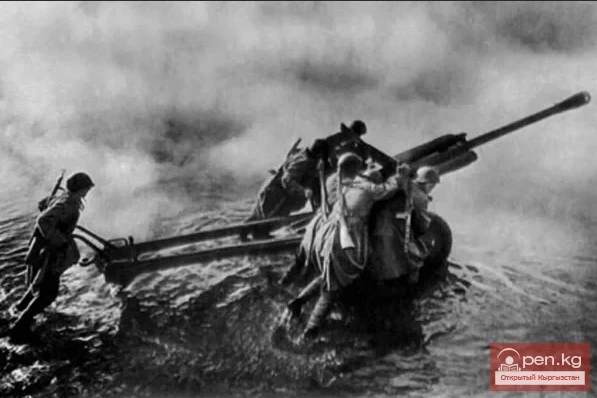
The paratroopers, having advanced about two hundred meters inland toward the village, were met with dense cannon and machine-gun fire. They took cover. The company commander, a very young lieutenant, kept jumping up, trying to rally the soldiers for an attack, but they just lay there, pressing into the ground. "Another half an hour of delay, and the fascists will recover, gather their forces, and... crush us," the lieutenant thought in despair.
Suddenly, a calm voice came from beside him:
— Well, commander, shall I throw in some fire?
— Artilleryman?! — the lieutenant exclaimed, half asking, half asserting.— Help us, sergeant! What are they doing...,— and he swore awkwardly.
— It will be done, commander!
Ovcharov crawled back to the gun.
— Do you see that machine gun firing from under the two pines? — he asked the gunner.
— I see it. I'm already aiming.
In less than a minute, the first shell exploded near the enemy machine gun, followed by another and another. The company charged forward.
Ovcharov's crew rolled their gun across the pockmarked field.
They were just a stone's throw from the village when enemy soldiers began to emerge from the outskirts, firing on the move.
The paratroopers fearlessly moved toward them. But there was a delay on the left flank. Ovcharov saw how the soldiers were falling, some were already retreating. He realized that the moment was critical. And he ordered to shift fire to the automatic riflemen.
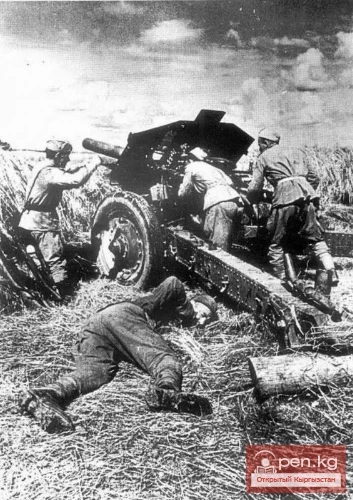
The shells fired from close range devastated the ranks of the counterattacking Germans. They mixed, took cover, and then, unable to withstand it, fled.
That morning, the brave sergeant's crew saved the paratroopers more than once. Already in the village, he boldly engaged in a duel with three enemy guns and destroyed them.
The assault group accomplished its mission. It seized a foothold and thus facilitated the crossing of the 92nd Guards Rifle Division to the right bank. During the subsequent two days of fighting, the foothold was significantly expanded. Then an order was received to switch to defense. Our command knew that the Germans would not accept the appearance of Soviet troops on the right bank and, gathering their forces, would attempt to launch a counterattack.
The 282nd Regiment set up its positions on the western outskirts of the village of Kalyunino, preparing to repel enemy attacks.
Here, the artillerymen of the fourth battery were also setting up their guns on tank-dangerous directions. On October 13, the commander of the 197th Guards Artillery Regiment, Lieutenant Colonel Grebennikov, arrived at their position. He visited all the crews. When he was introduced to Stepan Ovcharov, he said:
— I have heard about you, sergeant. The battalion commander asked to recommend you for an award. You acted skillfully during the crossing.
He explained the developing situation and, bidding farewell, looked at the soldiers with expectation:
— So how, will you hold out? We are counting on you...
At dawn the next day, the rumble of engines was heard from behind the hills, and soon fascist tanks appeared, spreading out in a fan for the attack. Behind them moved armored vehicles with infantry.
The "Junkers" swooped down on the regiment's positions like a predatory flock.
Commands rang out from the right and left: "Prepare for battle!" The locks of the guns clicked, and the casings slapped against the breeches.
When the first tanks puffed yellowish flashes of fire, everything around suddenly roared and whirled. The battle broke down into dozens of individual skirmishes.
Several enemy vehicles rushed toward Sergeant Ovcharov's position.
— To the front with armor-piercing shells!..— he repeated the command of the battery commander. The crew acted precisely. From his position, the commander could see how the gunner was feverishly turning the handwheels, blending into the panorama. Kneeling, the loader froze at the gun with a shell in hand. Runners rushed to him with new shells.
Mikhail froze for a few seconds. This meant he had caught a tank in the crosshairs of the sight. And immediately followed the shot.
The commander's gaze was fixed on the target. And a joyful "hit!" rang out across the position. Now others could clearly see how the tank with the cross stumbled on the move, and smoke billowed from it.
Again, the gunner glued himself to the panorama, and again the loader froze. Shell after shell, the artillerymen sent toward the fascist vehicles. They could not withstand it and crawled back behind the hills. But half an hour later, they rushed again toward the regiment's defensive lines.
The whirlwind of battle grew ever more intense. The enemy tank crews had pinpointed Ovcharov's firing position. Shells were already bursting in front, behind, and on the sides. The sergeant decided to roll the gun to a backup position. The crew successfully executed this maneuver. And again, half-deafened, with faces blackened from soot, the artillerymen scurried around the gun.
Now only the last box of armor-piercing shells remained. Caught up in the battle, the commander did not immediately notice how the neighbor's gun fell silent. And from there, from the hollow, a heavy-headed "Tiger" began to crawl straight toward them.
— Enemy on the left! Aim...— the sergeant's further command was drowned in the rumbling collapse. He felt as if someone had lifted him off the ground with immense force and hurled him against the wall of the gun pit. Red and black circles swam in his eyes.
A minute later, when Stepan came to, the ground around was torn apart, and the bloody bodies of his comrades lay scattered.
— Guys, is anyone alive?! — he shouted desperately and did not hear his voice. Then he dashed to the parapet and saw that very "Tiger." A burning hatred engulfed him. In two leaps, Stepan found himself at the gun and pressed against the panorama. "I'll get you right now..." His shot struck almost point-blank at the turret, and it was blown off the tank like a feather.
From the observation point of the artillery regiment, it was clear to see: of the entire fourth battery, only Sergeant Ovcharov's gun continued to fight. Around it, a fiery whirlwind raged, yet it kept pounding the enemy with direct fire. Another fascist tank froze with a broken track. But the forces were too unequal. One of the "Tigers" was sneaking up behind the brave man. It was already at the very parapet, ready to crush the gun under its weight. And at that moment, like a farewell salute, the last shot's flame flashed from the barrel.
The brave artilleryman perished along with his gun under the tank's tracks.
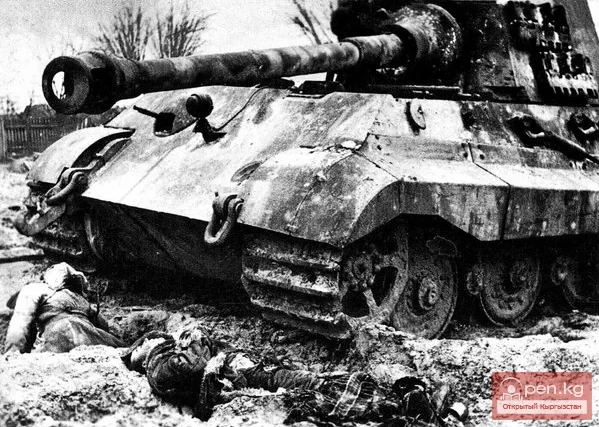
Thus, in the sparse lines of the award sheet, I saw the last battle of the sergeant from Kyrgyzstan, Stepan Semyonovich Ovcharov, for which he was posthumously awarded the high title of Hero of the Soviet Union.
S. S. Ovcharov was buried along with his comrades in arms on the high bank of the Dnieper. He was buried with all military honors, and a huge obelisk with a star was erected on the mass grave.
Years passed. In the cities and villages where the fallen soldiers lived, in the places of fierce battles and brotherly graves, monuments and memorials have now been erected. There is one in the city of Tokmak. It was built in memory of the fellow countrymen who did not return from the Great Patriotic War. On the marble wall surrounding the sculptural composition of soldiers going into battle, 1775 names are engraved. And at the top of this list is the name of Hero of the Soviet Union Stepan Semyonovich Ovcharov.
There is also a street in the city named in his honor. He lived and worked in mechanical workshops there before the war, where new workshops of the sugar factory now stand. The little house from which Stepan Ovcharov left for war in the fateful forty-first year has also been preserved. From here, following her husband, his wife went to the front as a volunteer and also did not return home.
The young people of Tokmak know and remember their Hero-countryman. Every year during the days of memory watch — at the gatherings of pioneer squads, Komsomol rallies, at the memorial, and in the city historical and local history museum, during the solemn send-off of young men to the army — they hear stories about the life and heroism of Stepan Ovcharov. For many years now, young boxers from the republic, gathering in Tokmak, have been competing for the prize named after Hero of the Soviet Union S. S. Ovcharov, which was established by the city committee for physical culture and sports.
D. PARCHUKOV
In the village of Dneprovokamenka, Dnipropetrovsk region, a monument has been erected to S. S. Ovcharov.
